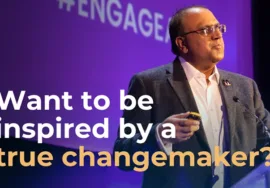
Is there a difference between coaching and mentoring
The goal of coaching is to learn skills and knowledge in a particular area. A coach will focus on the professional development of the individual around tangible skills or knowledge areas. It is usally short-term and task oriented.
Mentoring is more long-term and relationship focused. its about transformation and of some kind of the individual. This can include professional and personal life, we may use the same kind of criteria as we would for coaching – but the aim is not the achievement of these goals but rather than successful management of them. It is therefore not essential for the mentor to understand the facets of each task – they are not teaching, but facilitating.
They can be understandably lumped into the same group – but there are distinct differences between coaching and mentoring. If we look at teachers, we can see that they are both the coach and the mentor. A teacher provides a short-term support to overcome a task and develop understanding, but also a long-term support in trying to maintain or transform the behaviour and achievements of their students. In business and in the workplace, we tend to seperate these two categories.
Here are four ways to better understand coaching and mentoring :
What is the driving force?
Coaching is driven by a need to acquire skills and knowledge and improve a return on investment (ROI) for the individual. Mentoring is usually much harder to quantify and, as the focus is on relationships, cannot so easily be measured. A long time is required to observe change and even then observing it in isolation – away from other factors – is difficult. So the driving force for mentoring cannot usually be an immediate ROI as it will always fall short compared with coaching.
With Coaching its all about the bottom line!
The same as above but needs to reiterated again – Coaching is about a return on investment for the individual being coached! With a mentor it’s not about money – the mentor does the work with definite intentions that money won’t touch.
Is there a wider Business involvmement?
As the purpose of a coach is to improve the tangible skillset or knowledge of an individual, other people in the business will be involved e.g with a testing and measuring exercise, recording and analysing data etc . We usually don’t have this connection and wider business involvement with mentoring. Discussions between a mentor should be confidential, allowing a ‘safe space’ in which to air concerns or issues.
Coaches understand ideas and concepts and are experts at passing that on.
A coach is developing individual skillsets to make the person perform better in business or in the workplace. They should be well informed on what they coach. A mentor is a much more long-term investment, it is not usually a quick fix and can’t usually improve business and individual performance decisions in the short-term.
If you are in business at whatever level then a coaching programme should be given some consideration for increased business improvement and performance, there is no doubt that coaching is playing a crucial role more and more for business owners and as well as crossing over to employees in the workplace. More coaching is now coming from within businesses themselves, giving staff the ability to receive coaching from those around them and not necessarily the line manager. A developing culture of coaching means staff can benefit not only from each other, but also from having to teach aspects of their job – often improving their own understanding of it as well – a true win/win.










